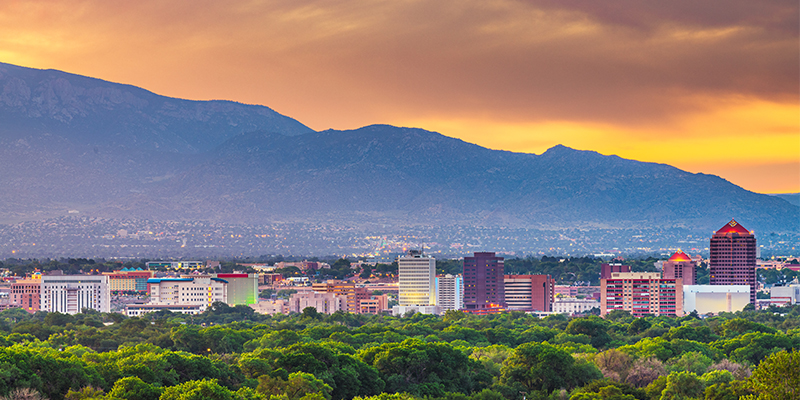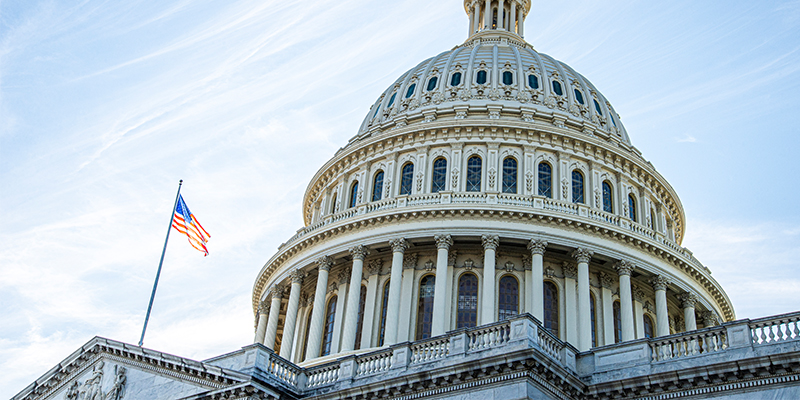A new proposed rule change to how air quality permits are issued in the Albuquerque metro has many economic development organizations, associations and businesses very concerned. While the goal of protecting vulnerable communities and improving air quality is necessary, we must also carefully consider the impact of rigid regulations on economic development.
Proposed Rule Change: An Overview
In November 2022, several local activist organizations submitted a letter and proposed rule change to the Albuquerque/Bernalillo Air Quality Control Board, aiming to address the concentration of air pollution in low-income and minority neighborhoods. The proposed changes grant the board the authority to enforce greater emission monitoring and reporting requirements than what the Environmental Protection Agency requires on any entity emitting air contaminants. It also circumvents the board’s decision and appeal process to automatically deny certain permit applications. Those triggers to automatically deny applications include areas that will impact an “overburdened community,” where if one characterization is true, then the permit cannot be approved.
As outlined in the petition, some metrics used to identify “overburdened communities” include:
- Adult asthma rates in the impacted census tract and all contiguous census tracts compared to the county average.
- Child asthma rates in the impacted census tract and all contiguous census tracts compared to the county average.
- The percentage of adults over the age of 65 in the impacted census tract and all contiguous census tracts compared to the county average.
- The percentage of children under the age of 18 in the impacted census tract and all contiguous census tracts compared to the county average.
- Emergency department admissions rates in the impacted census tract and all contiguous census tracts compared to the county average.
When one considers items No. 3 and No. 4 above on population under the age of 18 and over the age of 65, those characteristics cover most of Bernalillo County, thus making the obtainment of an air permit nearly impossible. While the intention is to protect public health and the environment, we must critically assess the negative impact it will have on economic development.
Challenges and Implications
The one-sided proposal is ripe with unintended harm and consequences and considers the issue of air quality in a linear, biased way. Here are some of the major issues that this proposed rule would create for the Albuquerque area should it pass:
1. A hostile regulatory environment: Proposals like these will create a rigid and hostile regulatory environment, making it increasingly difficult for businesses to operate and invest in the region. The increased compliance burden and costs associated with emission monitoring devices and reporting may deter new businesses from entering the market and hinder existing businesses’ ability to expand and create jobs.
2. Unintended collateral damage: The scope of the proposed changes goes beyond specific industries. They have the potential to impact essential facilities such as hospitals, schools and national laboratories. As the regulatory burden increases, our community’s institutions will face unnecessary hurdles that impede their ability to provide vital services and contribute to the local economy.
3. Lack of stakeholder involvement: One major concern is the lack of meaningful stakeholder engagement in the development of these proposed changes. The absence of pre-petition processes, public listening sessions and opportunities for revision limits the ability of businesses and community organizations to provide valuable input. A more inclusive approach would ensure that the concerns and perspectives of all stakeholders are adequately addressed.
Striking a Balance: Environmental Concerns and Economic Development
Many local businesses that hold air permits along with their trade associations and economic development groups have built a collation to address some of the most pressing concerns in response to this proposed rule change. The challenge with the proposition is that it was already introduced into the record, so now our only recourse to changing it with alternative perspectives is through a hearing officer in a semi-litigious setting. As such, the forementioned groups have hired legal representation to sign onto the petition as parties to work on the following:
1. Sustainable solutions: While we acknowledge the need to protect public health and the environment, it is vital to seek sustainable solutions that do not hinder economic development. By engaging in open and transparent discussions, we can find a balance between environmental concerns and the growth of our communities.
2. Data-driven decision making: It is crucial to base regulatory decisions on sound scientific data and comprehensive impact assessments. A thorough evaluation of the proposed changes should consider the potential economic consequences and explore alternative strategies that achieve the desired environmental outcomes without disproportionately burdening businesses.
3. Collaborative engagement: The success of any regulatory framework lies in effective stakeholder engagement. We must foster an environment where business leaders, community organizations and government agencies can work collaboratively to develop practical and innovative solutions that address environmental challenges while supporting economic growth.
Working Toward a Strong Future for New Mexico
Should this petition be approved by this board, experts believe that economic development will halt, which by itself is reason for denial of the petition. However, this will go far beyond just that with its implications to the national laboratories, military bases, hospitals and much more. Each of those agencies hold air permits currently and rely on them to operate. New Mexico’s national laboratories and military bases are a huge asset and if unable to innovate and grow, will make a strong case for the federal government to pull their funding. In relation to our hospitals, New Mexico is already a desert for adequate medical care, resulting in two of our major healthcare institutions doing major additions to their facilities within the past year; neither project would have been able to go through if this petition was in place at the time of their permitting.
As an industry, it is our responsibility to advocate for a balanced approach that considers both environmental and economic factors. By encouraging collaborative engagement, data-driven decision making and sustainable solutions, we can work toward a future where our communities thrive while safeguarding public health and the environment. Let us continue to advocate for inclusive processes that foster dialogue and ensure the long-term prosperity of our communities.













